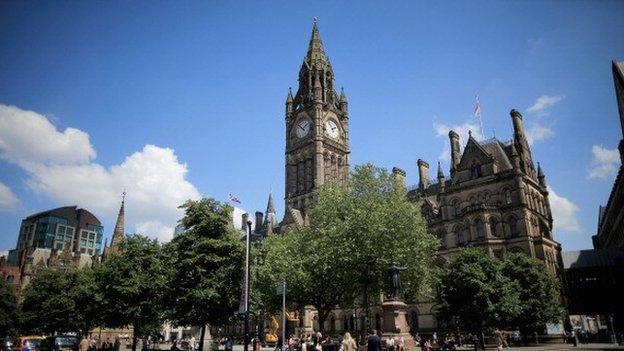Greater Manchester to control £6bn NHS budget
- Published
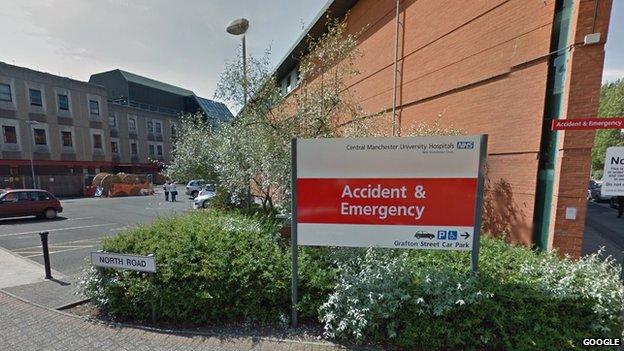
NHS trusts would be run by the region's councils and health groups under the plan
Greater Manchester is to become the first English region to get full control of its health spending, as part of an extension of devolved powers.
Chancellor George Osborne said the £6bn health and social care budget would be taken over by the region's councils and health groups.
Mr Osborne said it was a "really exciting development".
A Labour spokesman said NHS workers would "want to be persuaded of the case for a new layer of management".
The plan will come into force from April 2016.
Mr Osborne added: "This is what the NHS wants to see as part of its own future.
"And it's also about giving people in Manchester greater control over their own affairs in that city, which is central to our vision of the 'northern powerhouse'- so it's a very exciting development."
The plan would see local leaders, and ultimately Greater Manchester's new directly elected mayor, control how budgets are allocated.
The government hopes integrating health and social care services will ease pressure on hospitals and help to improve home care services for patients who need it.
A shadow Greater Manchester Health and Wellbeing board will be appointed, which will work closely with existing clinical commissioning groups of GPs.
The board is expected to run from April, before control of the budget is handed over a year later.
Manchester City Council confirmed 10 local authorities, 12 clinical commissioning groups, 14 NHS partners, NHS England and the government are in discussions on a "groundbreaking agreement for health and social care".
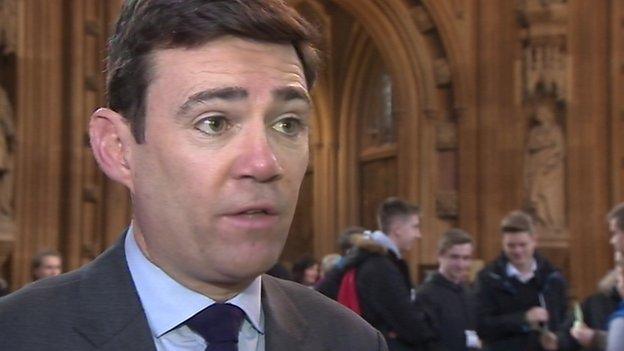
Andy Burnham MP said it could lead to a "swiss cheese" NHS, where "some bits of the system are operating to different rules"
Reacting to the proposals, Andy Burnham, Labour's shadow health secretary, said: "This has to be a solution that works everywhere or that could be offered to everywhere.
"If you're going to stick to the idea of a national health service you can't have a Swiss cheese NHS where some bits of the system are operating to different rules or have different powers and freedoms.
"I am a bit worried what I'm hearing because it does point to further break-up of the idea of the National Health Service."
Sir Richard Leese, leader of Manchester's Labour-controlled council said: "I had a long conversation with Andy Burnham today and I think he raises a number of legitimate questions. But I have to say that they are questions that we, as local authorities and the clinical commissioning groups, are asking as well."

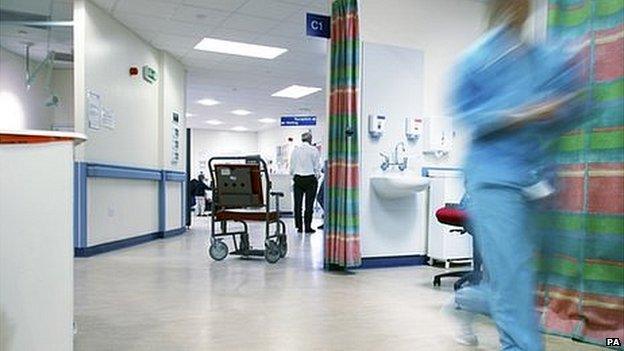
National Analysis
Nick Triggle, BBC health correspondent
Ever since the NHS was created in 1948, it has remained separate from the council-run care system that oversees help in the home with tasks such as washing and dressing and care home places.
But as the decades have gone by and health care has shifted from curing illnesses to helping people manage long-term conditions such as dementia and heart disease, there has been an increasing sense that the two systems need to become more joined up.
All three main political parties have their own ideas of how this should be done - and NHS England chief executive Simon Stevens signalled his support for greater integration with the publication of his Five-Year Forward View last autumn.
But Greater Manchester has taken the bull by the horns and proposed a pooling of budgets.
At this stage (and it must be said the details are still emerging) it seems to mirror what is being rolled out in Scotland and what has happened in Northern Ireland since the 1970s. So will this catch on across the rest of England?
It could be argued it already has. From April there will be small pooled budgets in all 151 local authority areas - including the 10 boroughs in Greater Manchester - as part of the government's Better Care Fund initiative. They will be worth £5.3bn in total.
That represents less than 5% of the combined spending on health and care nationally, but is clearly a step towards full integration.

Richard Humphries, assistant director of the King's Fund think tank, said a full transfer of responsibility would be a reform "on a breathtaking scale" but could pose serious risks.
Speaking on BBC Radio 4's Today programme, he said: "Depending on the detail - and the detail is really crucial and we don't have that yet - you could either see this as a triumph for local democracy or creating real risks of yet another reorganisation of the NHS when it's barely recovered from the last one."
Councillor Mike Connolly, Labour leader of Bury Council, said: "Those decisions need to be made in Greater Manchester and not Westminster, and I welcome any form of devolution to the city region.
"We are all agreed, certainly in the Labour Party, that health and social care must be integrated because it's about providing that primary care - and it can only be good for healthcare across Greater Manchester."
In November, Mr Osborne announced plans for an elected mayor for Greater Manchester to preside over regional issues.
The move, agreed with leaders of the region's councils, will give local politicians greater control over billions of pounds of public money.


Regional Analysis
Kevin Fitzpatrick, BBC Radio Manchester
If the initial devolution deal for Greater Manchester was ground breaking, then this development changes the shape of local government in a way that would have been unthinkable just a few months ago.
By taking control of the entire NHS budget, the area's 10 councils and the 12 Clinical Commissioning Groups, and then ultimately the elected mayor, will be able to join up health and social care in a way that's never been possible before.
In addition to control of the £2bn of budgets agreed last year for skills and training, transport and planning, the £6bn that comes with this deal means local politicians will decide how more than a quarter of government money is spent in their area.
Local politicians describe the move as an incredible opportunity, but it also comes with risks with just over a year to plan before the money and a huge amount of new responsibility is handed over.
Greater Manchester must ready itself to break more new ground as devolution picks up pace.

- Published25 February 2015
- Published25 February 2015
- Published27 January 2015
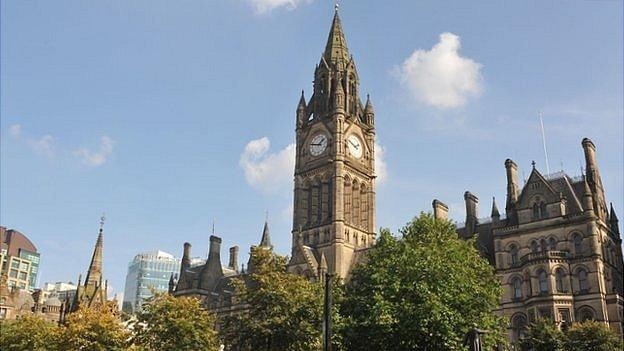
- Published3 November 2014
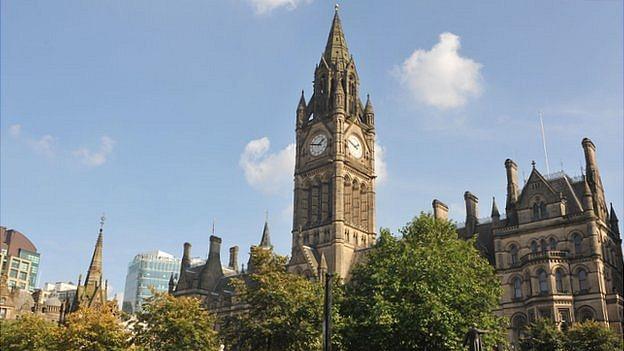
- Published3 November 2014
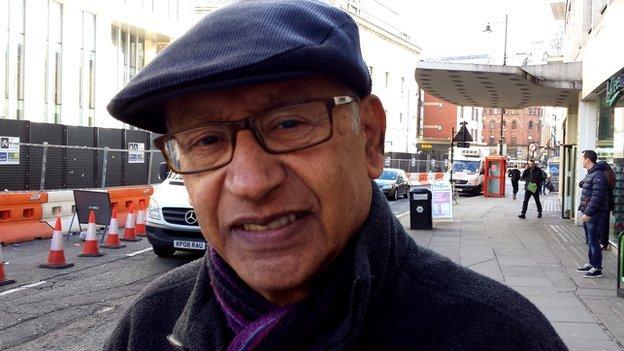
- Published3 November 2014
